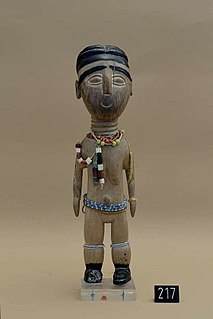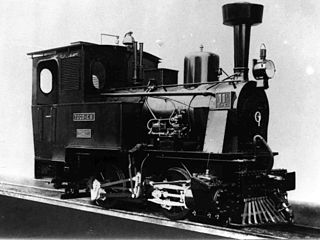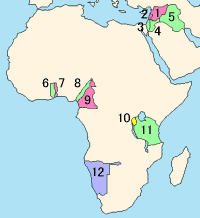
Togo, officially the Togolese Republic, is a country in West Africa bordered by Ghana to the west, Benin to the east and Burkina Faso to the north. The sovereign state extends south to the Gulf of Guinea, where its capital Lomé is located. Togo covers 57,000 square kilometres, making it one of the smallest countries in Africa, with a population of approximately 7.6 million.
The history of Togo can be traced to archaeological finds which indicate that ancient local tribes were able to produce pottery and process iron. During the period from the 11th century to the 16th century, the Ewé, the Mina, the Gun, and various other tribes entered the region. Most of them settled in coastal areas. The Portuguese arrived in the late 15th century, followed by other European powers. Until the 19th century, the coastal region was a major slave trade centre, earning Togo and the surrounding region the name "The Slave Coast".

United Nations trust territories were the successors of the remaining League of Nations mandates, and came into being when the League of Nations ceased to exist in 1946. All of the trust territories were administered through the United Nations Trusteeship Council. The one territory not turned over was South-West Africa, which South Africa insisted remained under the League of Nations Mandate. It eventually gained independence in 1990 as Namibia. The main objection was that the trust territory guidelines required that the lands be prepared for independence and majority rule.

Sylvanus Epiphanio Olympio was a Togolese politician who served as Prime Minister, and then President, of Togo from 1958 until his assassination in 1963. He came from the important Olympio family, which included his uncle Octaviano Olympio, one of the richest people in Togo in the early 1900s. After graduating from the London School of Economics, he worked for Unilever and became the general manager of the African operations of that company. After World War II, Olympio became prominent in efforts for independence of Togo and his party won the 1958 election making him the Prime Minister of the country. His power was further cemented when Togo achieved independence and he won the 1961 election making him the first President of Togo. He was assassinated during the 1963 Togolese coup d'état.

Togoland was a German Empire protectorate in West Africa from 1884 to 1914, encompassing what is now the nation of Togo and most of what is now the Volta Region of Ghana, approximately 77,355 km2 in size. During the period known as the "Scramble for Africa", the colony was established in 1884 and was gradually extended inland.

Elections in Togo take place within the framework of a presidential system. Both the President and the National Assembly are directly elected by voters. The country is a one party dominant state with the Union for the Republic in power.

The Ewe people are an African ethnic group. The largest population of Ewe people is in Ghana with (3.3m) people, and the second largest population in Togo with (2m) people. They speak the Ewe language which belongs to the Niger-Congo Gbe family of languages. They are related to other speakers of Gbe languages such as the Fon, Gen, Phla Phera, and the Aja people of Togo and Benin.

French Togoland was a French colonial League of Nations mandate from 1916 to 1960 in French West Africa. In 1960 it became the independent Togolese Republic, and the present day nation of Togo.

Volta Region, is one of Ghana's ten administrative regions, with Ho designated as its capital. It is located west of Republic of Togo and to the east of Lake Volta. Divided into 25 administrative districts, the region is multi-ethnic and multilingual, including groups such as the Ewe, the Guan, and the Akan peoples. The Guan peoples include the Lolobi, Likpe, Akpafu, Buem, and Nkonya people, et al.
Raphael Ernest Grail Armattoe was a Ghanaian doctor, author, poet and politician. He was nominated for the 1949 Nobel Peace Prize and was a campaigner for unification of British and French Togoland. He was called by the New York Post "the ‘Irishman' from West Africa", and the BBC producer Henry Swanzy referred to him as the "African Paracelsus".

Dr. Obed Yao Asamoah is a politician from Ghana. Asamoah is the longest serving foreign minister and Attorney General of Ghana under Jerry Rawlings from 1981 to 1997. Asamoah was educated at King's College London and at Columbia University. He was a lecturer in Law at the University of Ghana. Some of his famous students include Professor John Evans Atta Mills, Tsatsu Tsikata, Nana Addo Dankwa Akufo-Addo, current flag bearer of the New Patriotic Party (NPP), etc. In 2002, Asamoah replaced Rawlings as head of the opposition National Democratic Congress (NDC), beating former defense minister Alhaji Iddrisu by just 2 votes. In 2006, he lost his chairmanship position in the party. Not long after the defeat, he later resigned from the party. After accusations of having "stolen" about a 10 thousand cedis in the mid-90s, on August 28, 2006, he and other politicians launched a new political party, the Democratic Freedom Party (DFP) of which he is the life Patron. Despite speculation that Asamoah would run for President in 2008, he declared that he never intended to run for the presidency and would not seek the Presidency but instead work to win victory for his party in that year's national elections.. In October 2011, Dr. Obed Asamoah and his Democratic Freedom Party (DFP) re-joins the National Democratic Congress (NDC)which he helped form. He described as "wasteful thinking", suggestions that the DFP merged with the NDC because of ministerial appointment offers. He said the decision by the party to re-unite with the NDC is purely based on the growing internal democracy within the NDC.
The Anlo Youth Organisation was a political party that existed in the Gold Coast and later Ghana. It campaigned for the Ewe people under British rule to stay within Ghana after independence. It ended by merging with other parties to form a united opposition to the Convention People's Party.

The Evangelical Presbyterian Church, Ghana is a Protestant Christian denomination in Ghana. It is popularly referred to as the "EP Church". It has strong roots in the Evangelical and Reformed traditions.

The strains in Ghana–Togo relations stretch back to pre-independence days.
The Togoland Congress (TCP) was a political party formed in 1951 which had won three seats in the Gold Coast elections of April 1954 and two seats in the July 1956 elections, but did not survive for long afterwards. The Togoland Congress's secondary goal was to campaign for the unification of the Ewe people in British Togoland and French Togoland as a separate Ewe state; however the party yet again failed in the May 1956 UN plebiscite held in British Togoland, which had resulted in the unification of British Togoland and the Gold Coast.

A referendum on autonomy was held in French Togoland on 28 October 1956. Since World War I the territory had been a League of Nations mandate, then a United Nations Trust Territory under French control. The referendum offered residents the choice of remaining a Trust Territory or becoming an autonomous region within the French Union. The result being 93% in favour of the latter, with a 77.3% turnout. However, the referendum was rejected by the United Nations General Assembly as it had not included the option of independence and opted to continue with the trusteeship. In neighbouring British Togoland, a referendum earlier in the year had resulted in the territory becoming part of Ghana.

Rail transport in Togo began in 1905.

Western Togoland is a area in the Republic of Ghana. It has been part of UNPO since 2017. The area of Western Togoland is divided into five regions: Volta, Oti, Northern region, North East region and Upper East Region.
















